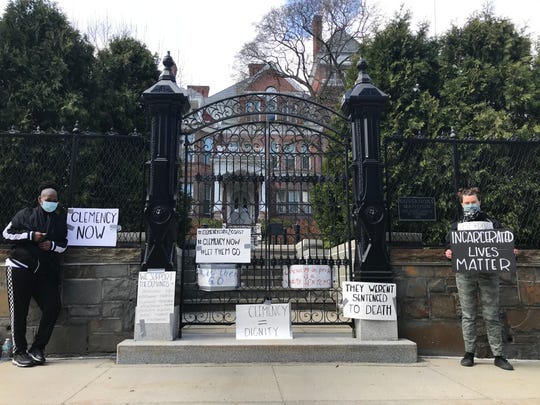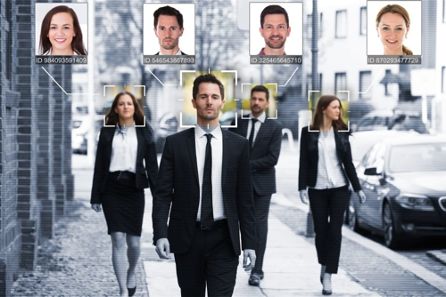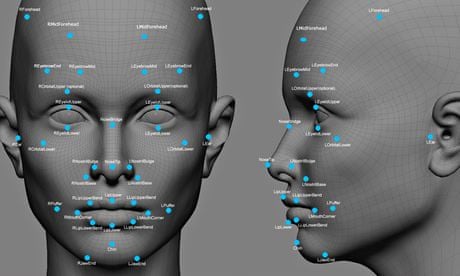
Go Fund Me Tax-Free: A Discussion of the Federal Tax Treatment of Funds Generated on Personal Crowdfunding Platforms such as GoFundMe from an Individual Tax Perspective
May 18, 2020Authors . Blog News . Certified Review . Feature . Feature Img . Issue Spotters . Policy/Contributor Blogs . Recent Stories . Student Blogs Article(Source) In 1913, Congress passed the Sixteenth Amendment to the United States Constitution which subjected all individuals to federal income taxation. According to the Center on Budget and Policy Priorities, income tax comprised 51% of all tax revenue in 2018 whereas payroll tax and corporate income tax comprised only 35% and 6% respectively. Because an

COVID-19 and the Criminal Justice System: How Prisons and Prisoners are Impacted
May 15, 2020Archives . Authors . Blog News . Certified Review . Feature . Feature Img . Issue Spotters . Notes . Policy/Contributor Blogs . Recent Stories . Student Blogs . Uncategorized Article(Source) “The closest thing I can equate it with is…when you’re locked in a cell in a giant, old, deteriorating jailhouse, is the fear that there will be a fire and no one will come in and unlock your cell. What caught my attention about this virus is that it really feels like

Unauthorized Disclosure: Judicial Violation of Mental Health Privacy
May 11, 2020Authors . Feature . Feature Img . Issue Spotters . Note Adaptation . Notes . Policy/Contributor Blogs . Recent Stories . Student Blogs Article(Source) Brandon Sharp managed a gas company in East Texas. Healthy, in his thirties, Sharp rarely saw a doctor. And yet he owed thousands of dollars in medical bills. Sharp was the target of medical identity theft, which victimizes tens of thousands of people each year. Thieves steal patient information, including names, Social Security numbers,

“Smile! You’re on Camera” – The Implications of the Use of Facial Recognition Technology
May 1, 2020Archives . Authors . Blog News . Certified Review . Feature . Feature Img . Issue Spotters . Notes . Policy/Contributor Blogs . Recent Stories . Student Blogs Article(Source) What is the first thing that comes to mind when you hear the phrase ‘facial recognition technology’? Is it a TV show or movie scene where law enforcement is staring at computer monitors as faces in a database cycle through as a software program looks for a match to an image of a suspect,

Is There a Way Out of the U.S. Military if You Morally Object to Your Job?
April 27, 2020Archives . Authors . Blog News . Certified Review . Feature . Feature Img . Issue Spotters . Notes . Policy/Contributor Blogs . Professor Blogs . Recent Stories . Student Blogs Article(Source) On January 3, 2020, so many people visited the Selective Service webpage that it crashed. The crash came hours after the announcement that Quasem Soleimani was killed by a U.S. airstrike ordered by President Donald Trump. In light of threats of a World War III and fear of a looming draft, the hashtag

Kids & Teens in Quarantine: Considerations for Navigating Co-Parenting During COVID-19
April 24, 2020Archives . Authors . Blog News . Certified Review . Feature . Feature Img . Issue Spotters . Notes . Policy/Contributor Blogs . Recent Stories . Student Blogs Article(Source) On April 9th, the ABA Center on Children and the Law, ABA Commission on Youth at Risk, and ABA Section of Civil Rights and Social Justice hosted a webinar regarding the COVID-19 pandemic’s impact on child welfare cases. The webinar primarily focused on the federal Children’s Bureau’s March 27th guidance on how family courts

The Doctrine of Equivalents: A Barrier to Cheaper Biologics?
April 20, 2020Archives . Authors . Blog News . Certified Review . Feature . Feature Img . Issue Spotters . Notes . Policy/Contributor Blogs . Recent Stories . Student Blogs Article(Source) The benefit of biosimilar drugs is clear—biosimilars provide the U.S. market with drastic cost-saving alternatives, with estimates of a reduction in spending on biologic drugs from 2017 to 2026 of $54 billion dollars. Biologics are pharmaceutical drugs designed from or involving biological process/materials such as proteins, DNA, carbohydrates, and triglycerides. They include vaccines such as your common flu

The High Seas of Television: How Should Streaming Television Be Regulated?
April 17, 2020Archives . Authors . Blog News . Certified Review . Feature . Feature Img . Issue Spotters . Notes . Policy/Contributor Blogs . Recent Stories . Student Blogs Article(Source) Last year more Americans subscribed to streaming services (69%) than traditional cable or satellite TV (65%). These internet-based television services, such as Netflix, Hulu, and Amazon Prime, are referred to as over the top (OTT) services. OTT services are film and TV content streamed over an internet connection, in contrast to traditional TV which

A “Growing” Industry?: Banking Regulation’s Impact on the Legal Cannabis Industry’s Growth
April 13, 2020Archives . Authors . Blog News . Certified Review . Feature . Feature Img . Issue Spotters . Notes . Policy/Contributor Blogs . Recent Stories . Student Blogs Article(Source) With the increase in the number of states legalizing cannabis for recreational or medical purposes, issues come to light surrounding the implications of the relationship between the legal cannabis industry and banks. Due to marijuana’s current illegal status under federal law, the legal cannabis industry suffers in several ways from its lack of banking

Facial Recognition Software, Race, Gender Bias, and Policing
April 11, 2020Archives . Authors . Blog News . Certified Review . Feature . Feature Img . Issue Spotters . Notes . Policy/Contributor Blogs . Recent Stories . Student Blogs Article(Source) Facial Recognition Technology (FRT) identifies a person’s face by navigating through computer programs that access thousands of cameras worldwide to identify a suspect, criminal or fugitive. FRT could even accurately identify a person’s from a blurry captured image or instantaneously identify the subject among a crowd. This is the fantasy portrayed in Hollywood